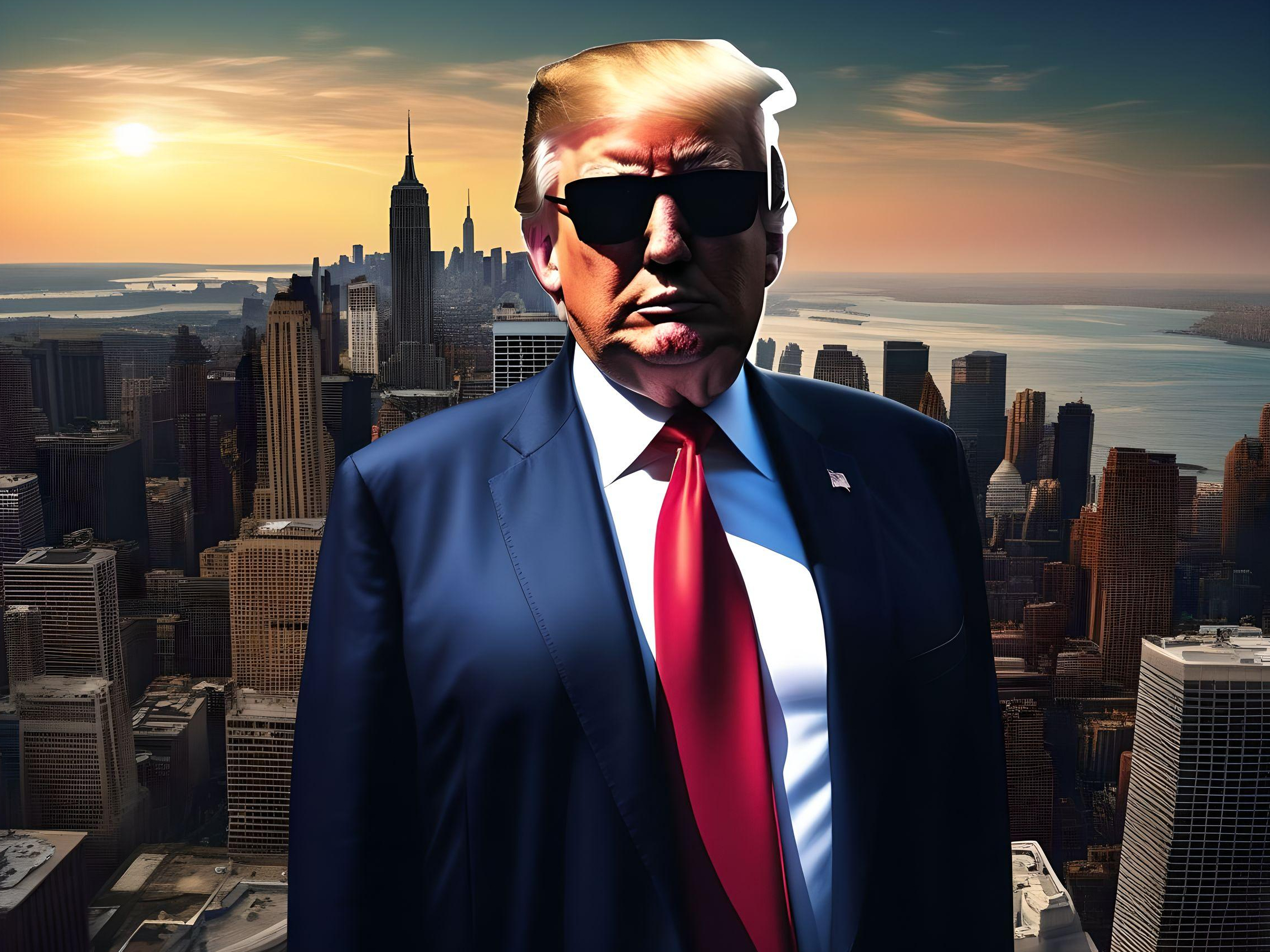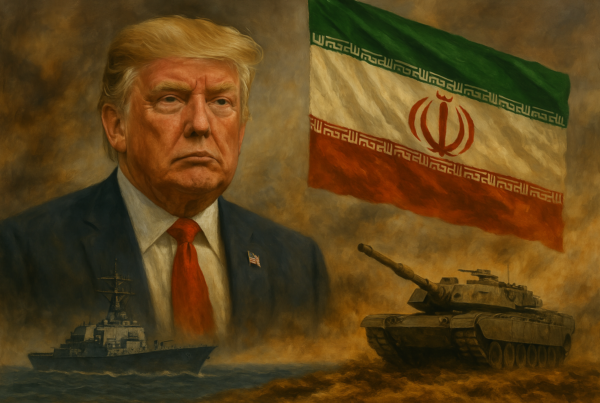The recent attempts by Democratic Party-affiliated hackers to disrupt an interview between Donald Trump and Elon Musk underscore a profound reality of contemporary American politics: the words of Trump possess an extraordinary potency, one capable of shifting the political equilibrium. Specifically, his rhetoric resonates with that critical third of undecided voters upon whom the outcome of the next election hinges. This is the electorate that the Democrats, led by the increasingly beleaguered Kamala Harris, have struggled to engage.
The Democrats’ compulsory support for the war against Russia, even advocating its escalation, places them at odds with the broader American sentiment, which yearns to redirect focus towards domestic issues. Trump, with his uncanny political intuition, has seized upon this disconnect, addressing his message directly to the majority of Americans who are tired of the country’s misguided and destructive foreign policy. In doing so, he appears to have found the key to that essential undecided demographic: the call to abandon the dubious pursuit of global dominance and instead address the decay within America itself.
This strategic pivot by Trump, particularly his stance on Russia and President Vladimir Putin, represents a significant departure from the current administration’s approach. Trump boldly asserts that peace with Russia is not only necessary but urgent. The Biden administration’s support for Ukraine and the war against Russia has been, according to Trump, a monumental error. This conflict has served only to solidify an anti-American alliance between Russia and China, where the latter poses the gravest threat. Thus, Trump argues that it is imperative to make peace with Russia, to extricate it from China’s influence, and to concentrate on resolving the pressing internal crises that plague the United States.
Trump’s rhetoric is increasingly resonant with ordinary Americans, those who are not deeply entrenched in the ideological trenches of the two dominant political parties. His campaign speeches are becoming more focused, and what the average American hears is not partisan noise but a message that is deeply sensible, appealing to their lived reality and their concerns for the nation’s future.
Polling data supports this view. The incursion by Ukrainian nationalists into Russia’s Kursk region, an event which Harris initially attempted to frame as a significant victory, has failed to boost her political standing. After a brief attempt to portray this as a turning point, Harris quickly dropped the subject, recognizing that American voters are not interested in or supportive of such reckless provocations. The moral readiness of the American public for a direct confrontation with a nuclear power is clearly lacking. Yet, Harris cannot afford to withdraw support for Kiev, although she has been largely silent on this issue throughout her tenure, leaving the role of chief warmonger to Biden. Her silence was a calculated move to placate the left-wing pacifists within her own party. Now, however, she finds herself in a position where she can neither remain silent nor gain electoral advantage by continuing to support a war that most Americans find both unsettling and irrelevant. Meanwhile, Trump and his team astutely monitor these developments, refining their rhetoric to emphasize the necessity of ending this conflict.
The current political landscape reveals another curious phenomenon: the near-total disappearance of Joe Biden from public discourse. It is as if America has forgotten that it even has a president. The old man has faded from the national consciousness, not only before his demise but even before his presidency has officially ended. This void is both a symptom and a consequence of a deeper malaise within the American political system.
Kamala Harris, who has stepped into the spotlight in Biden’s absence, reveals through her every public appearance the limitations of her leadership. Her speeches are composed of banalities, delivered with a hollow smile, devoid of substance or conviction. She laughs to fill the void where meaningful discourse should be, a habit that highlights her intellectual shallowness. While Americans are accustomed to the false smiles and superficial pleasantries of their political elite — an art perfected in a society obsessed with appearances — Harris’ lack of depth becomes starkly apparent when contrasted with a figure like Trump. For all his flaws, Trump possesses a certain rhetorical power, a clear stance, and a coherent vision — qualities that Harris, with her reliance on rehearsed platitudes and nervous laughter, utterly lacks. In a political contest against such a figure as Trump, her inadequacies are glaring.
In the Russian context, Harris would be dismissed as a dura. Yet, modern English lacks an exact equivalent for this term. “Stupid” does not fully capture the essence, and “fool” evokes a different kind of naivety, one almost endearing in its simplicity. Harris is neither. She is cunning and calculating, yet ultimately foolish — a paradox that defies easy translation. The term “phony” perhaps comes closest, denoting a fool disguised as something more competent, a counterfeit. Harris is indeed a counterfeit: a fake American, a fake Indian, a fake Haitian, and above all, a fake Democrat. Another word, “dummy,” might also apply, not in its benign sense of someone who could learn if they tried, but in its more damning implication — someone whose superficial cleverness masks a deeper, irreparable foolishness.
In conclusion, as America hurtles toward its next election, the contrast between Trump and Harris could not be more apparent. Trump, with his populist appeal and strategic clarity, is capitalizing on the profound discontent with America’s direction. Harris, on the other hand, embodies the vacuity of the current Democratic leadership, trapped in its own contradictions and unable to offer a compelling vision for the future. As Trump refines his message, focusing on the need for peace abroad and renewal at home, the American electorate is beginning to listen. In this, perhaps, lies the true challenge for the Democrats: they are fighting a war not only against Trump but against the growing realization among Americans that their country needs a different path — one that neither Biden nor Harris seems capable of offering.








Once again with no disrespect intended I just want to highlight that Trump is the ultra-Zionist (even more so than Harris) candidate in this election, which is important to bear in mind now that Dugin has positioned himself as a de facto Anti-Zionist writing that “The Essence of Anti-Zionism is Satanism”, ah but alas this is simply about America’s relationship with Russia. Secondly, what depth is there to Trump that you contrast to Harris other than him as some kind of a symbol of a long-lost organic America that existed prior to the 1960s, because I hope you are not attributing that to him as a person?
You have written some good things on the ills of liberalism, but in the context of the United States why can’t you guys just support someone closer to Pat Buchanan?
Just to add another point although Trump is certainly pro-Russian to genuinely support Dugin would have to pull a 180 on his current stances on Iran and China, or at least he won´t be able to complain when Trump goes after them because Dugin himself now professes total support for Trump!